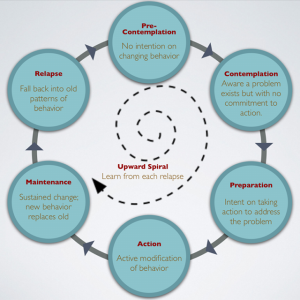Three Weeks Into 2021, Re-resolve To Be Resolute…

Some thoughts for 2021.
A few weeks ago we bid a much anticipated farewell to 2020 (and everything that came with it) and toasted to new beginnings in 2021. Some of us may have made lofty self-improvement resolutions which may have already gone by the wayside. And we may have already cursed 2021 (and everything that has come with it). I caught myself this weekend saying, “well, that will be better in 2022.” What? Wait! That was my very justified rationale for not making changes in 2020. I’ll just wait for X (and, X never came… so change was put on indeterminate hold… if only X would happen…).
Instead of resigning ourselves to 11 more months of anticipatory limbo or self-flagellation for ‘failure,’ let’s rework our resolutions into systematic processes of change, not dependent on anything outside ourselves and able to be started, reworked, and restarted if needed.
First of all, a resolution needs to be realistic and defined. If it’s been a while since you had a fitness routine, instead of making a goal to complete an Ironman marathon (swimming, biking, topped with running a marathon), you resolve to start an exercise practice and make healthy changes to eating habits. Instead of resolving to “be more mindful,” you resolve to start a daily gratitude list and a meditative practice using a five-minute app.
There are multiple stages of change (requiring planning and follow through) every person goes through to arrive at their goal (see, “Stages of Change Model,” developed by Prochaska and DiClemente). People do not make changes unless they are ready. So, make a decision for change, attainable and in stages, and let’s go from there.
- CONSIDER YOUR OPTIONS: The first stage of change is Pre-contemplation. In this stage a person isn’t sure they need to make a change and hasn’t made any plans for the change. A person in this stage is not considering a change and has not yet seen the need for change. Often this stage ends prematurely with “I can’t do that” or “I don’t need to do that.”
- MAKE A DECISION: The second stage is Contemplation. In this stage a person is considering the change and looking at its pros and cons: “I might be happier if…” “What would it be like to quit smoking?” “Maybe I should change my diet?” “Should I start exercising?”
- IDENTIFY STRATEGIES/STEPS: The next stage is Preparation, when the person is making plans to make changes. Do your research, consider your options, and choose one. There are lots of choices, and there is no room for ambivalence. Choose one – if necessary, later its practicality can be reexamined or revised.
- TAKE THE FIRST STEP(S): The fourth stage is Action. In this stage a person starts to engage in behaviors to support the change. They may begin to log their food, weigh in, start an exercise program, attend (or log onto) their first AA meeting. Remember the goal and steps must be realistic and attainable. Baby steps! Please use moderation in and supports with all changes you make. If your steps are too restrictive, strenuous, unmanageable, or unsupported, it is difficult to maintain these changes and you may feel like giving up. When supports are involved, people are much more successful in making changes.
- EMBRACE THE PRACTICE AS PERMANENT: The next stage is Maintenance. Once you have put healthy changes into action, you will want to be able to maintain the positive. In this stage, you continue the new behaviors until they become patterns and habits; and you will see progress. For changes to be long-lasting, they have to be viewed as lifestyle changes instead of temporary restrictions. When a person “goes on a diet,” they are usually conceptualizing a short-term change in eating habits. They may reach their target weight but, without sustained changes, they can gain the weight again. Think “healthier choices” instead of “a restrictive diet.”
- GIVE YOURSELF GRACE: Unfortunately, there is another stage of change that we don’t like to talk about. This stage is Relapse. We may or may not fall back to old behaviors and old habits that get in the way of our goals. If we do, this does not have to be a ‘failure” but an opportunity to learn and adjust the parts of the plan that were not working. Hang in there and try again! Use your supports or develop new ones and get back up and try again! You don’t have to wait. You can start today – why wait until tomorrow or 2022? Keep trying!
If you are considering a change and need support, please reach out to VJLAP for free and confidential support. We can refer you to resources such as doctors, psychiatrists, therapists, recovery programs, our volunteers, or support groups; and we can just be a listening ear if that is what you need.
Whatever changes you want to make this year, go for it! Have a safe, healthy, and happy 2021!
*This article is intended for informational purposes and is not meant to be medical or psychiatric advice. Please consult with a medical or mental health professional if you have concerns about your physical or mental well-being.
